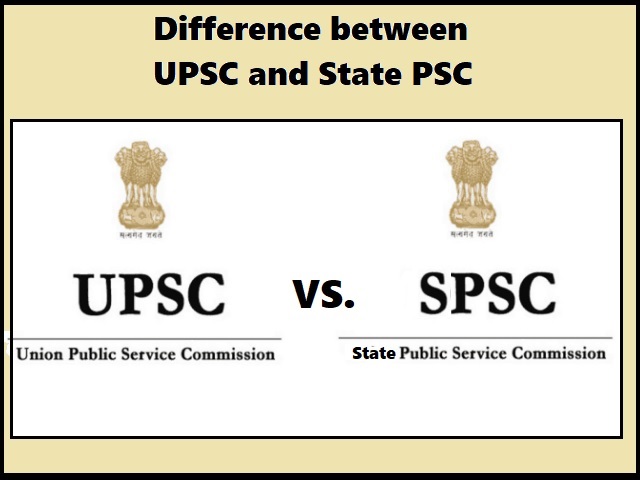Stepping into the world of civil services in India demands a
daunting journey marked by rigorous examinations. Among the most prominent
choices are the Union Public Service Commission (UPSC) and the State Public
Service Commission (State PSC) exams. These examinations serve as gateways to
prestigious government positions, providing aspirants an avenue to
significantly contribute to the nation's administration. In this article, we
will delve into the primary distinctions between UPSC and State PSC exams, facilitating
your decision-making process regarding which one aligns better with your career
aspirations.
Jurisdiction and
Scope
The most fundamental and defining contrast between UPSC and
State PSC exams is their jurisdiction and scope. While UPSC conducts
examinations at the national level, State PSCs operate at the state level. The
UPSC examination opens doors to coveted positions in the Indian Administrative
Service (IAS), Indian Police Service (IPS), Indian Foreign Service (IFS), and
other prestigious all-India services. Conversely, State PSC exams pave the way
for state-level administrative services like the State Civil Services, State
Police Services, and State Forest Services.
Exam Pattern and
Syllabus
Another pivotal difference lies in the exam pattern and
syllabus. UPSC administers the Civil Services Examination (CSE), a three-tier
process comprising the Preliminary Examination (Objective), Main Examination
(Descriptive), and Personality Test (Interview). The UPSC CSE syllabus is
extensive, encompassing subjects such as History, Geography, Polity, Economy,
Environment, and Current Affairs.
In contrast, State PSC exams may exhibit variations in their
examination patterns and syllabi. Each State PSC defines its unique selection
process, which may incorporate preliminary exams, main exams, and interviews. The syllabus for state-level examinations
typically revolves around topics directly pertinent to the administrative requirements
of the specific state. Some states carry the same pattern of examination as that of UPSC
Competition and
Difficulty
UPSC examinations are renowned for their fierce competition
and elevated difficulty level. Lakhs of aspirants from across the country vie
for a limited number of vacancies in all-India services. The examination is
renowned for its unpredictable nature and the necessity for a comprehensive
knowledge base.
While State PSC exams are indeed competitive, they may
witness a comparatively smaller pool of applicants in comparison to UPSC. The
level of difficulty can vary from state to state, contingent upon the specific
recruitment rules and regulations established by the respective State PSCs.
Reservation and
Domicile Criteria
State PSC exams often incorporate reservation policies and
domicile criteria favouring candidates from a specific state. These policies
are designed to ensure that a certain percentage of positions are reserved for
candidates from the state itself or from specific categories such as Scheduled
Castes (SC), Scheduled Tribes (ST), Other Backward Classes (OBC), or
economically weaker sections (EWS). UPSC examinations, operating at the
national level, do not include state-specific reservation policies.
Language and Regional
Focus
State PSC exams might emphasize a command of the regional
language and an understanding of local issues. Candidates are frequently
evaluated based on their awareness of state-specific matters. In contrast, UPSC
exams predominantly centre on English and Hindi as the mediums of examination
and do not necessitate a profound knowledge of any particular regional
language.
Bottomline
The choice between UPSC and State PSC exams hinges on your
career aspirations, personal preferences, and your willingness to contend with
varying degrees of competition. UPSC offers an opportunity to serve at the
national level and unlocks the doors to prestigious services, while State PSC
exams provide a platform to work closely with state governments and address
local concerns. In the end, both pathways offer fulfilling and impactful
careers in public service. It is imperative to meticulously evaluate your goals
and make an informed decision that aligns with your strengths and interests.
Irrespective of your choice, dedication, hard work, and a thorough
understanding of the examination pattern and syllabus will remain the keys to
achieving success.

